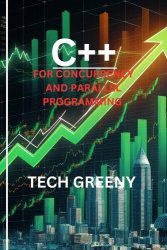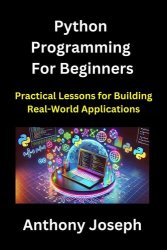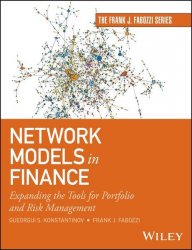 Название: C++ For Concurrency And Parallel Programming: Mastering Multithreading, Multiprocessing, and High-Performance Computing with C++11/C++14/C++17
Название: C++ For Concurrency And Parallel Programming: Mastering Multithreading, Multiprocessing, and High-Performance Computing with C++11/C++14/C++17Автор: Tech Greeny
Издательство: Independently published
Год: 2024
Страниц: 158
Язык: английский
Формат: pdf, azw3, epub, mobi
Размер: 10.1 MB
Unlock the full potential of C++ for concurrent and parallel programming! This comprehensive guide provides a thorough introduction to the cutting-edge features and techniques of C++11/C++14/C++17 for building high-performance, scalable, and efficient concurrent systems.
The contents of this book, "C++ for Concurrency and Parallel Programming: Master Multithreading, Synchronization, and High-Performance Computing", are intended to provide a general understanding of concurrency and parallel programming techniques in C++. While every effort has been made to ensure the accuracy and clarity of the information presented, the author and publisher make no warranties, express or implied, regarding the applicability, performance, or completeness of the methods or examples provided.
This book is not a substitute for professional advice or technical consultation. Readers should use the techniques and code samples at their own discretion and test them in their own environments. The author and publisher shall not be held liable for any errors, omissions, or outcomes resulting from the use of the information contained herein, including but not limited to data loss, performance degradation, or security vulnerabilities in software systems.
Furthermore, concurrency and parallel programming can present challenges such as race conditions, deadlocks, and other complex issues. It is the responsibility of the reader to ensure that their implementation is correct and appropriate for their specific use case, and to follow best practices for safe and efficient parallel code.
Concurrency and parallelism are two fundamental concepts in modern computing that aim to increase the efficiency and performance of programs, especially in environments where multiple processes or tasks need to be executed. These concepts allow applications to handle multiple tasks seemingly at the same time, optimizing the use of hardware resources and reducing latency or wait times. However, the terms "concurrency" and "parallelism" are often used interchangeably, despite having distinct meanings in the context of computer science.
Concurrency refers to the ability of a system to manage the execution of multiple tasks by switching between them, either explicitly or implicitly, to maximize the system’s responsiveness. In essence, a concurrent system handles multiple operations in progress at the same time, but not necessarily simultaneously. For instance, a single processor can execute multiple tasks concurrently by rapidly switching between them, giving the appearance that they are running simultaneously. This is especially useful in scenarios where a program needs to handle I/O operations, such as reading from a file or sending data over a network. In such cases, the program can perform other tasks while waiting for the I/O operations to complete, thus improving responsiveness.
On the other hand, parallelism involves the simultaneous execution of multiple tasks on multiple processors or cores. Unlike concurrency, where tasks take turns using a shared resource (like a single CPU), parallelism involves breaking down tasks into smaller subtasks that can run at the same time on separate processors. Parallelism is particularly useful in compute-intensive operations such as scientific simulations, image processing, and large-scale data analysis. Modern multi-core processors and distributed computing systems are designed to leverage parallelism, thus significantly improving performance for these tasks.
One key difference between concurrency and parallelism is that while all parallel programs are concurrent, not all concurrent programs are parallel. A program can be concurrent without being parallel, as is the case with time-slicing on a single-core processor. Conversely, a parallel program requires hardware support, such as multi-core or multi-processor systems, to execute multiple tasks simultaneously.
Readers are encouraged to stay informed about updates and changes to the C++ language, libraries, and tools, as this field continues to evolve.
Key Features:
Comprehensive coverage of C++ concurrency and parallelism fundamentals
In-depth exploration of threads, mutexes, locks, and synchronization primitives
Advanced topics: atomic operations, condition variables, and futures
Expert guidance on designing and optimizing concurrent algorithms
Practical examples and case studies using C++11/C++14/C++17
Coverage of parallelism libraries: OpenMP, Intel TBB, and C++ Parallel Algorithms
What You'll Learn:
Understand C++ concurrency and parallelism concepts
Master thread management, synchronization, and communication
Implement concurrent data structures and algorithms
Optimize performance using atomic operations and lock-free programming
Apply parallelism techniques using OpenMP and Intel TBB
Stay up-to-date with the latest C++ standards and features
Target Audience:
Experienced C++ programmers
Software engineers and developers
Researchers and academics in computer science
Anyone interested in high-performance computing and concurrent programming
Скачать C++ For Concurrency And Parallel Programming
[related-news] [/related-news]
Комментарии 0
Комментариев пока нет. Стань первым!















